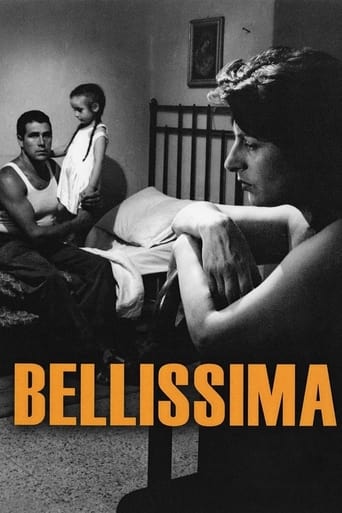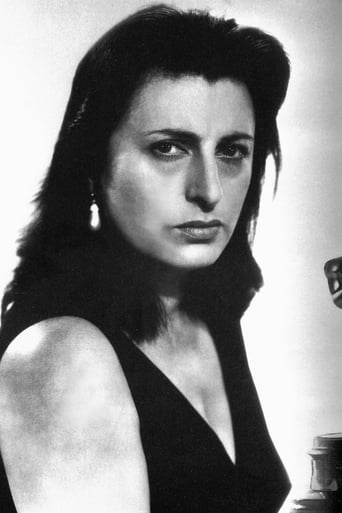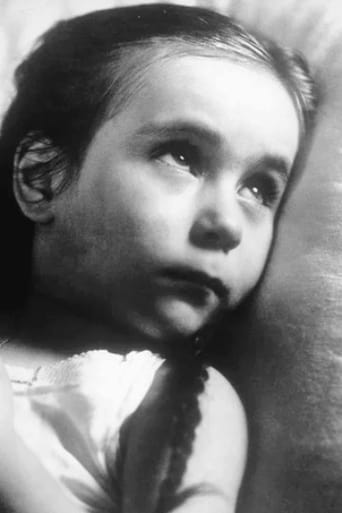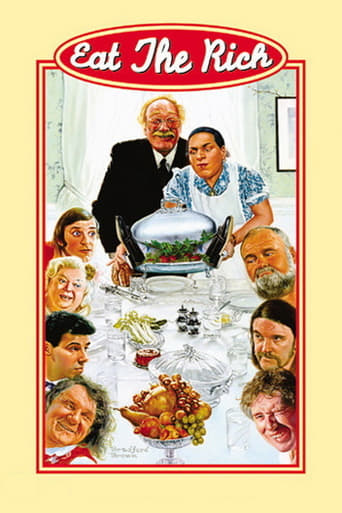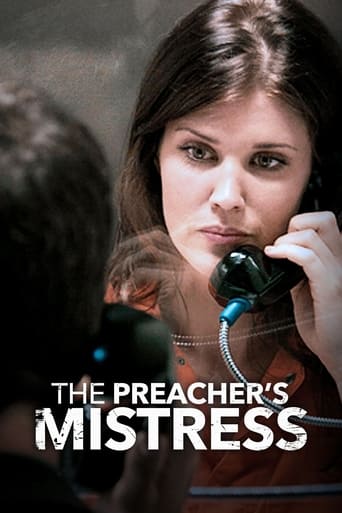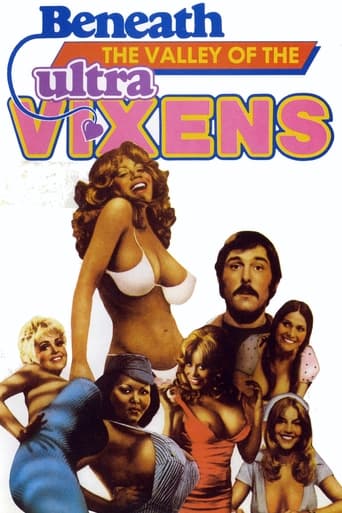Bellissima (2018)
Film director Blasetti is looking for a little girl for his new movie. Along with other mothers, Maddelena takes her daughter to Cinecittà, hoping she’ll be selected and become a star. She is ready to sacrifice anything for little Maria.
Watch Trailer
Free Trial Channels
Cast


Similar titles
Reviews
Very well executed
Self-important, over-dramatic, uninspired.
I wanted to like it more than I actually did... But much of the humor totally escaped me and I walked out only mildly impressed.
While it is a pity that the story wasn't told with more visual finesse, this is trivial compared to our real-world problems. It takes a good movie to put that into perspective.
This is the 3rd Luchino Visconti film that I've watched, the other two being 'Ossessione' and 'La Terra Trema'. What's interesting about these 3 films is that although all of them contain the quintessential neo-realist backdrop of post war Italian helplessness and melancholy, each of them have a distinct and separate tone to them. 'Ossessione' was an erotic thriller and 'La Terra Trema' was a socially conscious family drama. 'Bellissima' on the other hand has a much more lighthearted comedic tone. The central element of a mother desperately wanting her daughter to win a talent contest serves the same thematic purpose as the actual bicycle in De Sica's 'Bicycle Thieves'. It represents something deeper about the mother and also the post war Italian working class in general. The film also features a really confident, assertive and dynamic performance by the great Anna Magnani. She drives the film forward through sheer personality. However having said all that, I don't think 'Bellissima' comes anywhere close to reaching the heights of 'Ossessione' and 'La Terra Trema' which I think are masterpieces. It's worth a watch, but I don't think it is a film to desperately seek out.
"Bellissima" is structured in a circular and ephemeral plot. Their conflict, which becomes stronger as a situation, is mimesis of reality, of stories so close and common but diversified. In short: the human desire to overcome poverty, even if we stimulate exploitation even more.The timeless character of this film made in 1951 by Luchino Visconti, is already clear in its synopsis: The story of Maddalena (a nurse), who inscribes his daughter Maria, in a contest that aims to elect the most beautiful girl in Italy. The contest represents a ticket to give the daughter a life that oscillates between dignity and luxury, being that mother-protagonist, ready to everything to guarantee the victory of the daughter.In a large part of this story that sometimes takes situations and absurd moments, facing a desire that borders the limitations of vision, rationality and absurdity when showing the starting points, play and finalize this saga. That is drawn by a mother motivated by the future of her daughter, this dramatic dimension that is characteristic to the film, if diluted wisely in moments of comedy. Maddalena's attitudes are laughable, all the more so as in the lack of artistic talent of her daughter. This laughs at the other, the role of a fool that plays this mother not to notice in the daughter who lacks other attributes, and the belief that the beauty of the girl, added to the interference of this mother, as in trying to buy the jurors or get someone inside the Production of the film that highlights the test of Maria, that this sum can interfere in the result and consecrate in the victory of Maddalena through the small daughter.With all the merits of a timeless story, and without regret the fact that the director had in hand a material very close to the neo-realist films that consecrated him, that is, to have something very close to the style that was customary to do, but that is Rejected in "Bellissima", approaching this story through the realistic bias, in which, personally, I consider that it was desirous to the producers of the film and to the director to present a more comprehensive aspect of the fable, considering the common character of this story, that happens and repeats itself In life, and which is now reflected on canvas, but which, in abandoning a reflection of this realism pertaining to a certain social reality, generates a filmic approach that equates maternal desires, however, disproportionate and invalid in face of class differences and consequently incapable of generating Changes, or results, how can you compete with a family that already has a wide advantage? This inequality of classes is mentioned and treated very superficially in the small plots in which they are presented, this minimizes the strength and potentiality of Visconti and Bellissima, since the approach in which it is presented (its form), makes it impossible for itself speech. The struggle to overcome class differences, through methods that reinforce and contribute to these differences. In truth, the mother does not struggle to overcome anything, she wants only to belong to something, and in the end, when she perceives this world of cruel differences that she admired and in which she ended up collaborating, it becomes, then, the moment of rationality and revolt of Maddalena. In portraying cinema as a microcosm of a prosperous world in advantageous possibilities, Visconti satirizes the film industry itself and human innocence in the face of its belief in possibility and belonging. This belief that induces the ability to use mechanisms, but is already dominated by commercial interests, which among others, result in the strengthening of class differences and simulate a fantasy world, such as the cinema and its benefits.The entire film is anchored by the magnetic and fascinating performance of Anna Magnani, who fills the entire screen with a fiery vitality and intensity that is almost impossible to look away. In 1951, she was one of the queens of Italian cinema and was already echoing all over the world. Anna was the favorite actress of Bette Davis, and Bette considered Anna's performance in "Bellissima" as: brilliant, uninhibited and full of immense power. There is hardly a moment in the movie where it is still or silent. Visconti, almost exclusively, records Anna in medium and full planes, giving her ample room for compositions and promoting seams from one end of the frame to the other.Between several scenes of fade-in and fade-out that stitch together the film, between jumps of episodic events that collaborate for the construction and the outcome of the plot, it calls the photographic proposal of Piero Portalupi and Paul Ronald, who basically establish a climate of life Obscure in the apartment of Maddalena, in contrast, the reflectors and dazzle of lights of the "Cinecittà", a directing of light that directs not only the convicted desire of Maddalena, but with only enlightened path that offers a perspective, a way out that life between Shadows Another great moment of mastery of this photograph is in the game between half light that illuminates faces or that highlight one among many others, a clear allusion to the pursuit of brilliance and own light that dialogue and much for the construction of "Beautiful".Although not the most interesting film of Visconti, and leaving aside many of the brands that have consecrated it, "Bellissima" is an interesting work and that dialogues with the contemporary world, and possibly dialogues with the future world, since between the social differences Which we both struggle to overcome, are often unconsciously reinforced through a selfish struggle that seeks only to save some and not realize that it will only result when we understand the need for a whole. Luchino Visconti was able to write for our eyes, an important social and cultural document that reflects on yesterday, analyzes the present and provides paths for tomorrow.
This is a very small story--a poor woman tries to make her daughter a child movie star--but it has a tremendous, operatic performance from Anna Magnani. Magnani is like all other stage mothers in that the success she desires for the child is really her frustrated ambition for herself (her tiny daughter has no interest in acting, and whines and cries all through the picture), but unlike them in that she never loses her sense of humour. When she realises she has been cheated, instead of becoming outraged, she laughs at her own foolishness, briefly relaxing from her usual blind intensity to become a normal, likable woman.Her character's desperation to escape her life is understandable when one sees the dump she lives in with her husband and child. The small, dilapidated flat with stained walls, in a building full of fat, sour- faced harpies in hideous housedresses--one never sees such horrors in Hollywood films. Too bad this neo-realism became old-style realism--we could use some of this today as a counter to the candy-floss world we see on TV and in the movies.One amusing note: The film-struck Magnani says at one point to her husband, "Oh, Burt LanCASter! Molto gentile!" Three years later Lancaster would be playing her lover in The Rose Tattoo.
A wonderful, poignant masterpiece by the great Visconti and Anna-the-Great-Magnani. On the surface, it is a simple story about a mother's obsession to use her little daughter's appearance to escape the poverty of post-war Italy. What transpires is the cruel truth about the beauty- and illusion-making industry (cinema), with all its inherent cynicism, at a time when hunger for the daily bread was equaled by hunger for fantasy and beauty.I've seen this movie only once, ages ago, and it still remains with me as one of the most unforgettable films I have ever seen. In a world that has seen hundreds of thousands of films that is no small feat.

